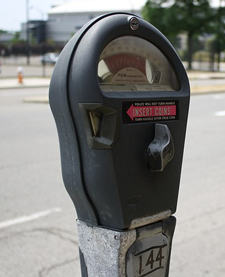It can be very challenging for senior adults to properly manage medications. There are various reasons for this, such as changes in drug regimens, the onset of a previously undiagnosed health condition, or changes in a current condition. All these factors can make the proper use of prescription medications a complex process. For this reason, it is essential for older men and women to take only the drugs prescribed by their healthcare practitioner and have their pharmacist confirm that there is no potential for hazardous drug interactions among the various prescriptions.
A Complex Process
My name is Matt Love and as a Licensed Health Insurance Agent I know the importance Medication management for my clients. I’ve noticed that it is especially vital if you have multiple illnesses or are suffering from complications of a specific disease. This is because you may have to rely on many different drugs to control your symptoms. Taking multiple prescriptions is often referred to as “polypharmacy” and is especially common among older individuals.
This is because the average lifespan has significantly increased over the past two decades, but medical issues have simultaneously increased. If you take prescription drugs for one or more diseases or conditions, follow the tips below to avoid possible medication complications or potentially dangerous mistakes:
The Importance of Pre-Sorting Pills
If you take multiple medications, invest in pill containers that allow you to organize your prescriptions according to the days of the week. This makes it much easier to remember to take your pills and it can also eliminate the stress of wondering if you lost count while opening and closing multiple bottles. Such containers can also be found that label pills “morning,” “afternoon,” and “evening.” Using such containers greatly simplifies the daily task of taking medications.
Create a Reminder System
Forgetting to take a prescribed medication can have a negative impact on how your body functions and may even make you more susceptible to illness. For this reason, creating a reminder system is of the utmost importance. There are several ways to do this, from simply leaving yourself a note to setting an alarm in your home or having a family member or friend give you a call at the appropriate time.
If possible, get into the habit of taking your prescription medication at the same time each day, as creating such a routine reduces the chance of forgetting to take one or more of your pills.
Make Sure You Understand Which Pills Can be Taken Together
It is essential to ensure your physician prescribes medications that can be taken at the same time without negative effects. In certain cases, multiple medications taken together are associated with too many side effects or the overall result is simply too strong.
In such instances, the drugs should be taken at separate times. Discuss this subject in detail with your doctor or pharmacist to avoid making dangerous mistakes or experiencing severe side effects that could have been avoided.


Make Frequent Doctor’s Appointments
As you age, it becomes increasingly important to visit your physician frequently and address any problems or concerns you may have about your current medication regimen. Additionally, your symptoms may have decreased, or dietary and lifestyle changes may have reduced your need for a particular prescription drug.
Other times, a prescribed medication does little or nothing to help your specific health disorder, and an alternate solution must be found. Always take your list of medications along with you when visiting your doctor so that he or she can review each pill you take and whether or not it is having the appropriate effect.

Find Out if Medications Should be Taken With Food or Liquid
Although most drugs should be taken with food, some medications are designed to be taken on an empty stomach. If you must take multiple drugs, be sure of what you need to drink or eat prior to taking the medication or immediately after the pill is taken.
If you consume a particular drug with food when it was meant to be taken on an empty stomach, its effectiveness may be decreased. Similarly, if you take a pill on an empty stomach that should only be taken with food, you may experience adverse effects. For this reason, you should familiarize yourself with the proper way to take each of your prescriptions.
Watch for Side Effects of New Medications
It is vitally important to pay close attention to side effects when starting a new medication. Common side effects of prescription drugs include upset stomach, weakness, dizziness, sleepiness or insomnia. However, there is a virtually limitless number of side effects associated with a broad range of medications, and the ones experienced largely depend on the class of drug you are taking. Contact a physician immediately if you feel ill from a new prescription and tell the doctor about your symptoms in as much detail as possible.
Dispose of Expired Drugs
All drugs eventually expire. Therefore, it is important to pay close attention to the expiration date of all your prescriptions, as consuming expired pills can lead to serious side effects. Expired drugs should be safely disposed of, and you should consult your doctor about obtaining a refill prescription if the expired medication is still part of your regimen.
Familiarize Yourself With Drug Interactions
According to the Council on Family Health, more than 35 percent of all negative reactions from medication involves individuals over the age of sixty. This percentage may even be higher, as not all cases are reported.
Another study completed by the Centers for Disease Control and Prevention indicated that over 30 percent of emergency room visits among those 65 years of age or older are due to bad reactions to common prescription drugs such as Coumadin, digoxin and insulin. For this reason, it is imperative to speak to your physician about how to take your prescription safely and how to spot negative reactions as early as possible.


Additional Safety Tips
If you are like most individuals, you probably follow your doctor’s instructions on a regular basis. However, the American Family Physician Journal estimates that up to 50 percent of older adults take their medications in the wrong amounts, at the wrong times, or sometimes omit them entirely. To avoid making such mistakes, have your doctor write down the directions for each medication you take, and ask your pharmacist for large print type inserts for your prescriptions if you have trouble reading labels. Finally, this may seem silly, but never reach for your medicine bottles in the dark, as it is simply too easy to mix them up and inadvertently take the wrong drug.
You should also keep in close touch with your personal care practitioner. When you visit your doctor make sure to do the following:
• Give your doctor a list of your medications.
• Write down any questions you have about the dosage of your medications.
• Ask for clarification on whether or not your prescriptions should be taken with food or liquids.
• Give your doctor a list of any new symptoms you are experiencing.
• If you are on prescriptions that require blood tests for monitoring, ask your doctor to explain the values of your latest test.
• Tell your doctor about any over-the-counter medications or herbs you take in addition to your prescription medications.
• Mention your eating habits or discuss any dietary changes you have recently made.
• Inform your doctor if you smoke or use alcohol, and how much caffeine you consume on a regular basis, as these can all affect or interact with certain medications.
Fortunately, many people with health conditions can keep their symptoms under control with medication. However, it is crucial to understand your prescriptions, what they do, and how they should be taken. Following the steps outlined above will help you to avoid making mistakes and decrease the chances of forgetting to take your medications. As always, if any medication gives you severe or unexpected side effects, talk to your doctor as soon as possible.
Matthew Love
Health Insurance Consultant
Colorado
MedicareGoal, LLC







